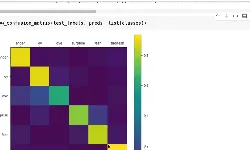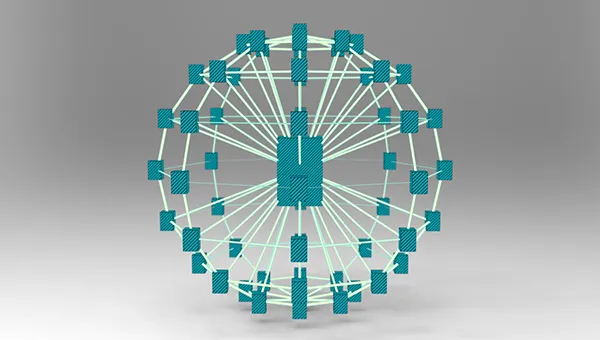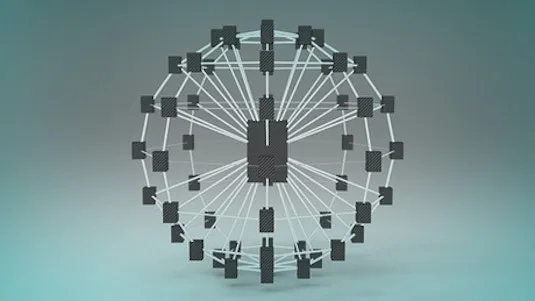
Free Cloud Computing Tutorial - Cloud Computing: The Technical essentials 
This free course provides a comprehensive introduction to the technical essentials of Cloud Computing. Gain the knowledge you need to get started in this rapidly growing field. ▼
ADVERTISEMENT
Course Feature
![]() Cost:
Cost:
Free
![]() Provider:
Provider:
Udemy
![]() Certificate:
Certificate:
No Information
![]() Language:
Language:
English
![]() Start Date:
Start Date:
Self Paced
Course Overview
❗The content presented here is sourced directly from Udemy platform. For comprehensive course details, including enrollment information, simply click on the 'Go to class' link on our website.
Updated in [April 29th, 2023]
This course provides an overview of the technical essentials of cloud computing. Participants will gain an understanding of the fundamentals of cloud computing, such as virtualization, networking, storage, and cryptography. They will learn what the cloud is and how it is defined, as well as recognize the Cloud's Deployment Models and Service Models. By the end of the course, participants will have a better understanding of the technical aspects of cloud computing.
[Applications]
The application of this course can be seen in many areas. It can be used to help organizations understand the fundamentals of cloud computing and how to use it to their advantage. It can also be used to help individuals understand the different deployment and service models of cloud computing, as well as the different types of storage and cryptography. Additionally, this course can be used to help organizations develop strategies for using cloud computing to their advantage. Finally, this course can be used to help individuals and organizations understand the security implications of cloud computing and how to protect their data.
[Career Paths]
1. Cloud Architect: Cloud Architects are responsible for designing, building, and managing cloud computing systems. They must have a deep understanding of cloud computing technologies, such as virtualization, networking, storage, and cryptography. Cloud Architects must also be able to develop and implement strategies for deploying and managing cloud-based solutions. The demand for Cloud Architects is expected to grow significantly in the coming years as more organizations move to the cloud.
2. Cloud Security Engineer: Cloud Security Engineers are responsible for ensuring the security of cloud-based systems. They must have a deep understanding of cloud security technologies, such as encryption, authentication, and access control. Cloud Security Engineers must also be able to develop and implement strategies for protecting cloud-based systems from threats. The demand for Cloud Security Engineers is expected to grow significantly in the coming years as more organizations move to the cloud.
3. Cloud Developer: Cloud Developers are responsible for developing applications and services for cloud-based systems. They must have a deep understanding of cloud development technologies, such as programming languages, databases, and web services. Cloud Developers must also be able to develop and implement strategies for deploying and managing cloud-based applications and services. The demand for Cloud Developers is expected to grow significantly in the coming years as more organizations move to the cloud.
4. Cloud Solutions Architect: Cloud Solutions Architects are responsible for designing and implementing cloud-based solutions. They must have a deep understanding of cloud computing technologies, such as virtualization, networking, storage, and cryptography. Cloud Solutions Architects must also be able to develop and implement strategies for deploying and managing cloud-based solutions. The demand for Cloud Solutions Architects is expected to grow significantly in the coming years as more organizations move to the cloud.
[Education Paths]
1. Bachelor of Science in Computer Science: This degree path provides students with a comprehensive understanding of computer science, including topics such as programming, software engineering, computer networks, and database systems. Students will also learn about the fundamentals of cloud computing, such as virtualization, networking, storage, and cryptography. This degree path is becoming increasingly popular as cloud computing continues to grow in popularity and importance.
2. Bachelor of Science in Information Technology: This degree path focuses on the application of technology to solve business problems. Students will learn about the fundamentals of cloud computing, such as virtualization, networking, storage, and cryptography. They will also learn about the different cloud deployment models and service models. This degree path is becoming increasingly popular as cloud computing continues to grow in importance.
3. Master of Science in Cloud Computing: This degree path provides students with a comprehensive understanding of cloud computing, including topics such as virtualization, networking, storage, and cryptography. Students will also learn about the different cloud deployment models and service models. This degree path is becoming increasingly popular as cloud computing continues to grow in importance.
4. Master of Science in Data Science: This degree path focuses on the application of data science to solve business problems. Students will learn about the fundamentals of cloud computing, such as virtualization, networking, storage, and cryptography. They will also learn about the different cloud deployment models and service models. This degree path is becoming increasingly popular as cloud computing continues to grow in importance.
Pros & Cons

Simple and easy to understand

Excelente contenido

Good intro to servers and cloud

Amazing course content

Interesting and well explained

Too high level and slow

Missing visuals

Too slow

Not sufficient visuals
Course Provider

Provider Udemy's Stats at AZClass
Discussion and Reviews
0.0 (Based on 0 reviews)
Explore Similar Online Courses

VFX Rotoscoping 101 with After Effects and Mocha

Tweet Emotion Recognition with TensorFlow

Python for Informatics: Exploring Information

Social Network Analysis

Introduction to Systematic Review and Meta-Analysis

The Analytics Edge

DCO042 - Python For Informatics

Causal Diagrams: Draw Your Assumptions Before Your Conclusions

Whole genome sequencing of bacterial genomes - tools and applications

Cloud Computing Concepts Part 1

Introduction to Cloud Identity

Cloud Computing Concepts: Part 2
 Related Categories
Related Categories
Quiz
 Submitted Sucessfully
Submitted Sucessfully
1. What is the definition of cloud computing?
2. What are the four main deployment models of cloud computing?
3. What are the three main service models of cloud computing?
4. The four main deployment models of cloud computing are _________, _________, _________, and _________.
Correct Answer: Public, Private, Hybrid, Community


Start your review of Free Cloud Computing Tutorial - Cloud Computing: The Technical essentials